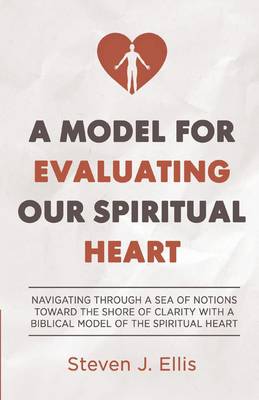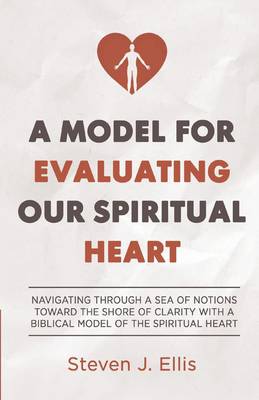
- Retrait gratuit dans votre magasin Club
- 7.000.000 titres dans notre catalogue
- Payer en toute sécurité
- Toujours un magasin près de chez vous
- Retrait gratuit dans votre magasin Club
- 7.000.0000 titres dans notre catalogue
- Payer en toute sécurité
- Toujours un magasin près de chez vous
A Model for Evaluating Our Spiritual Heart
Navigating Through a Sea of Notions Toward the Shore of Clarity with a Biblical Model of the Spiritual Heart
Steven Ellis
Livre broché | Anglais
26,95 €
+ 53 points
Description
A Biblical Model for Evaluating Our Spiritual Heart is designed to facilitate critical and biblical thinking regarding the spiritual heart. It attempts to solve the problem of a lack of clarity and confusion regarding the meaning of the spiritual heart, differences in terminology, different meanings for the same terms, and a sea of notions about what the spiritual heart is and does. The book builds upon the large number of times the word heart is used in the Bible. Through these uses, we discover that the spiritual heart is that which God highly values in us. He desires that our hearts be aligned with His heart. Having a model is a good first step to alignment. The model helps us detect and analyze areas of brokenness. Understanding our brokenness and the brokenness of others is the first step toward renewal and restoration of the spiritual heart. The intended audience is the Christ-follower who desires clarity regarding the composition and nature of the spiritual heart. It is particularly helpful for the small group leader, counselor, pastor, parachurch ministries, and, in general, Christians who are engaged with people who are hurting. The term "model" represents a repeatable framework that can be used to think critically and biblically about our spiritual heart. We all have God-given and legitimate needs and desires as humans such as love, acceptance, approval, contribution, security, and many others. We form and embrace beliefs regarding how those needs and desires can be met and satisfied. Those beliefs are either consistent with truth or not; they are either Christo-centric or anthropocentric in orientation. Those beliefs translate into values and are paired with expectations to form our motivations. The combination of our beliefs, values, expectations, and motivations are at the root of all of our behaviors. If we desire to understand how and why we think, speak, pursue what we prioritize, and relate to others in the way we do, we must trace the origin of those behaviors all the way through the model to the need we are attempting to meet. The model is fairly simple. It is biblically supported in my book. Its implications are profound. The book also explores the role of the Holy Spirit, especially the meaning of the "filling" with the Holy Spirit. Particular focus is directed at the relationship between the "filling" commanded by the Apostle Paul in Ephesians 5:18 and our spiritual hearts - including the old self / new self dichotomy.
Spécifications
Parties prenantes
- Auteur(s) :
- Editeur:
Contenu
- Nombre de pages :
- 182
- Langue:
- Anglais
Caractéristiques
- EAN:
- 9781953436009
- Date de parution :
- 08-10-20
- Format:
- Livre broché
- Format numérique:
- Trade paperback (VS)
- Dimensions :
- 140 mm x 216 mm
- Poids :
- 217 g

Les avis
Nous publions uniquement les avis qui respectent les conditions requises. Consultez nos conditions pour les avis.






